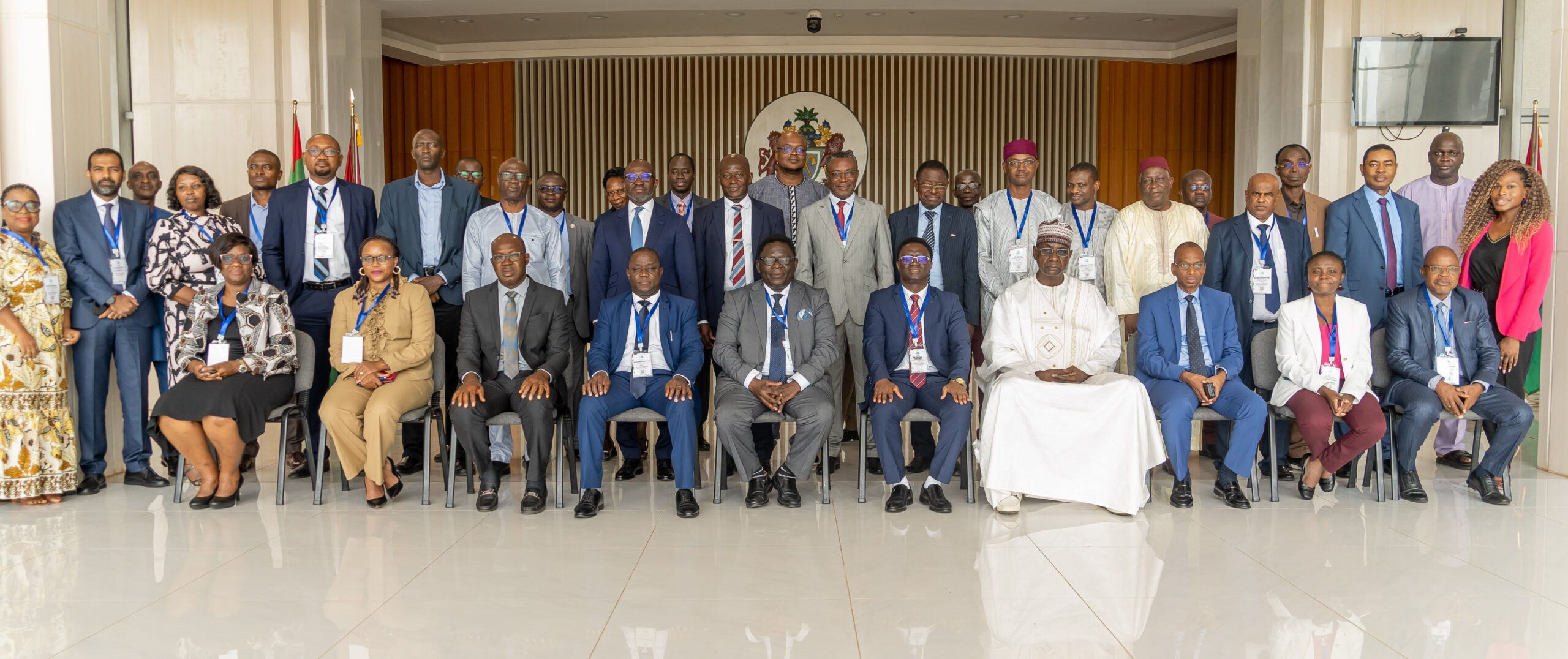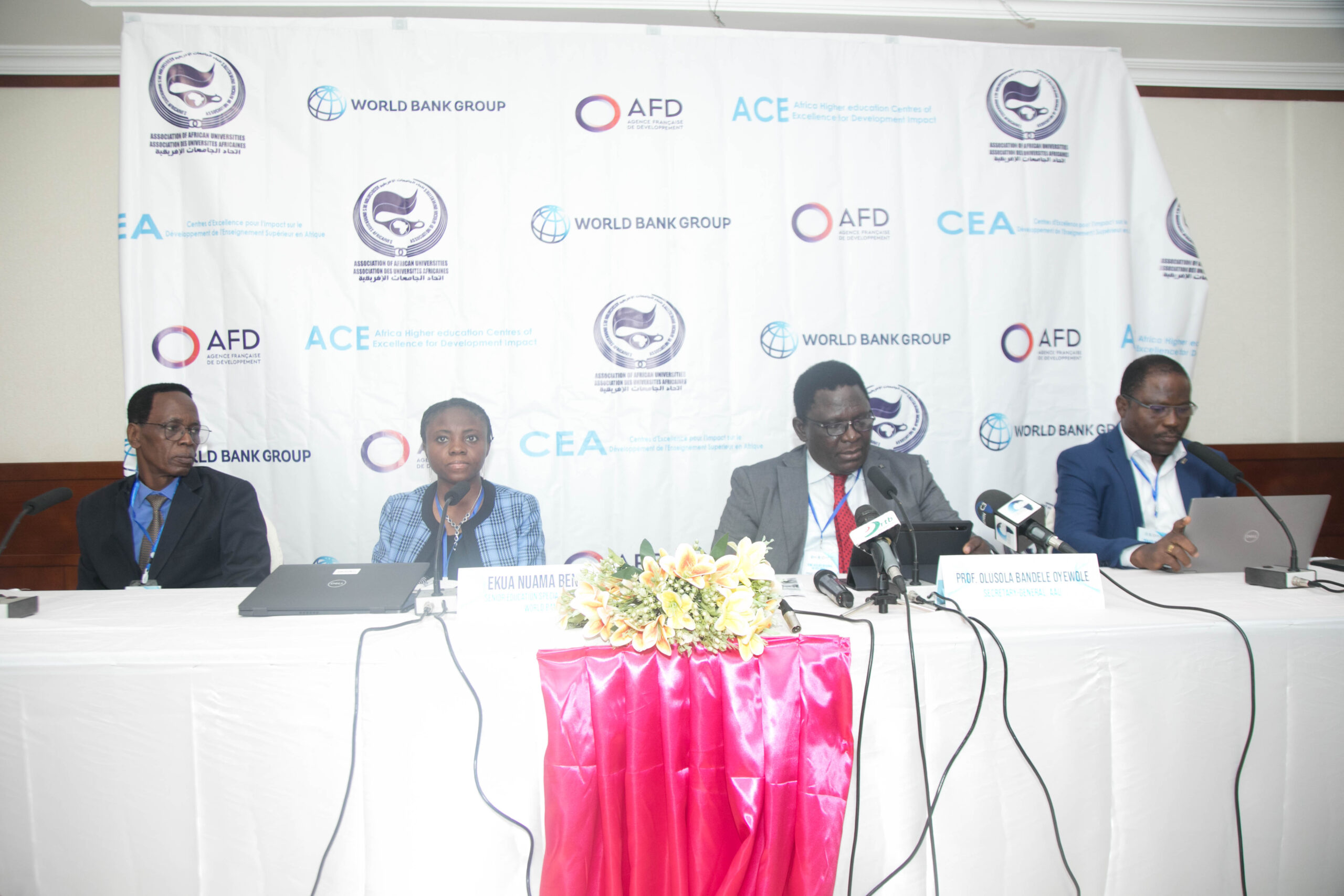African Ministers of Higher Education & Key Stakeholders Meet in Banjul for the 8th ACE Impact Regional Workshop
PRESS RELEASE
African Ministers of Higher Education and Key Stakeholders Meet in Banjul for the 8th Africa Higher Education Centers of Excellence for Development Impact (ACE Impact) Regional Workshop
Accra, Ghana (November 8, 2022) – Stakeholders of the Africa Higher Education Centers of Excellence for Development Impact (ACE Impact) project will be convening in Banjul, The Gambia, for the 8th bi-annual meeting to be held from 14th-17th November 2022. The meeting will bring together Ministers of Higher Education and project government representatives from the 11 participating African countries, the leaders of the fifty-three (53) Centers of Excellence, subject matter experts, key higher education stakeholders, policy think tanks, and partners such as the World Bank, the French Development Agency (AFD) and the Association of African Universities (AAU).
The workshop fosters an environment of knowledge sharing and networking between the centers and relevant agencies, providing in-person collaborative opportunities for the exchange of regional knowledge. The necessary tools and guidelines to facilitate effective project implementation and sustainability are shared with all centers, strengthening partnerships and networks whilst ensuring quality standards are maintained. The meeting seeks to provide implementation support and share global best practices with centers on the project objectives, especially development impact, entrepreneurship and innovation, gender initiatives, digital transformation, and institutional impact activities.
In line with students’ participation in this high-level meeting, winners of the maiden edition of the Student Innovation Research Award (SIRA) will be recognized. At least the best 15 ACE Impact students competitively selected for the SIRA will be awarded during the closing ceremony for outstanding competitive projects that offer solutions and innovative ideas in transformative research and interdisciplinary collaborations. Furthermore, students from the University of Applied Science, Engineering, and Technology (USET) in The Gambia will be given the opportunity to share their innovative research outputs through a poster exhibition to be held on November 15, 2022.
All activities, including the Opening and Closing ceremonies will be held (or hosted) at the OIC Conference Centre in Banjul, The Gambia. Virtual participation is available for stakeholders that may want to join online. The opening and closing sessions of the workshop will be held on the 15th and 18th of November, respectively, at 8:00 GMT. The special guest-of-honor for the opening session is His Excellency Adama Barrow, the President of the Republic of The Gambia.
The workshop will be preceded by a closed-door Ministerial/Steering Committee meeting on 14th November 2022. The Ministers of Higher Education and project government representatives from the 11 participating countries together with key partners will take stock of the progress made thus far and make recommendations towards the sustainability of the project.
The ACE Impact project remains committed to training the next generation of experts in priority areas such as Science, Technology, Engineering, and Mathematics (STEM); Agriculture, Environment, Applied Social Science, Education, and Health with the aim of promoting sustainable growth and development in Africa.
Please visit the event website for details of the meeting Agenda among other relevant information.
– END –
For further information, contact
The World Bank: Hadijja Jawara, hjawara1@worldbank.org
The AAU: Millicent Kyei, makyei@aau.org
The Gambia: Maya Faal, mayafaal10@gmail.com
Background Information
The Africa Higher Education Centers of Excellence (ACE) is a World Bank initiative in collaboration with governments of participating countries to support higher education institutions specializing in Science, Technology, Engineering and Mathematics (STEM), Agriculture, Health, Environment and Social Science/Applied Science and Education. It is the first World Bank project aimed at building the capacities of higher education institutions in Africa through the promotion of regional specialization among participating universities in areas that address specific common regional development challenges. It further aims to strengthen the capacities of these universities to deliver high-quality training and applied research, as well as meet the demand for skills required for Africa’s development. The first phase (ACE I) was launched in 2014 with 22 Centers of Excellence in Nine (9) West and Central African countries; Benin, Burkina Faso, Cameroon, Côte d’Ivoire, Gambia, Ghana, Nigeria, Senegal, and Togo. The second phase (ACE II) was launched in East and Southern Africa with 24 centers across Ethiopia, Kenya, Malawi, Mozambique, Rwanda, Tanzania, Uganda, and Zambia. Based on the initial successes, the World Bank, and the French Development Agency (AFD) in collaboration with the African governments, launched the ACE Impact Project in 2019 to further strengthen post-graduate training and applied research in existing fields and support new fields that are essential for Africa’s economic growth. Under ACE Impact, there are 53 ACEs specializing in the broad thematic areas of STEM, agriculture, health, environment and social/applied science and education. For more information on the ACE Impact Project, visit https://ace.aau.org
About the Organizers
Association of African Universities (AAU): The Association of African Universities is an international non-profit, non-governmental organization created by African Universities to promote cooperation among them on the one hand, and between them and the international academic community on the other. Created in 1967, the AAU is the Voice of Higher Education in Africa. AAU aims to improve the quality of African Higher Education and to strengthen its contribution to Africa’s development by supporting the core functions of Higher Education Institutions and facilitating critical reflection and consensus building on issues affecting Higher Education in Africa. The AAU is the Regional Facilitation Unit of the Africa Higher Education Centers of Excellence for Development Impact project.
World Bank Group: The World Bank Group is a multilateral development institution that works to reduce poverty and boost shared prosperity. Its subsidiary IDA (International Development Association) finances the Africa Centers of Excellence series of projects. The World Bank’s International Development Association (IDA), established in 1960, helps the world’s poorest countries by providing grants and low to zero-interest loans for projects and programs that boost economic growth, reduce poverty, and improve poor people’s lives. IDA is one of the largest sources of assistance for the world’s 74 poorest countries, 39 of which are in Africa. Resources from IDA bring positive change to the 1.3 billion people who live in IDA countries. Since 1960, IDA has provided $458 billion to 114 countries. Annual commitments have averaged about $29 billion over the last three years (FY19-FY21), with about 70 percent going to Africa.
French Development Agency (AFD): For more than 75 years, the French Development Agency (AFD) has been fighting global poverty by supporting policies and investments that benefit the poorest populations. Strengthening the social link between individuals, groups, and territories are now at the heart of its actions in education, health, employment, urban planning, climate, and biodiversity. The French Development Agency (AFD) is the ACE Impact project co-financier.


